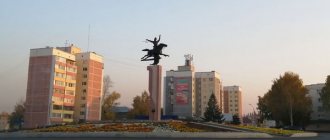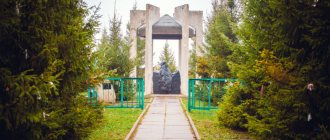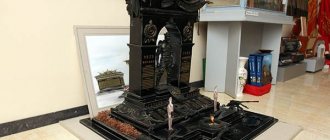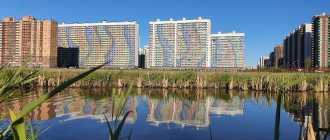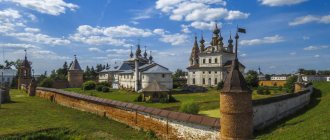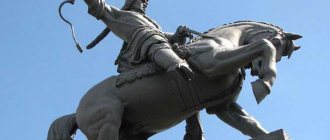Salavat is a specific du'a prayer with exaltation of the Prophet Muhammad (his position before God and people). Imam al-Qurtubi said: “Salavat to the Prophet Muhammad from God is His mercy, contentment and exaltation before the angels. Salavat from the angels - a prayer for the Prophet Muhammad and asking for forgiveness. Salavat from followers (from the Ummah) is a prayer for him, asking for forgiveness and exalting his position.”[1].
Salawat - asking God for blessings for the Prophet Muhammad, for example, saying اللَّهُم صَلِّ عَلَى سيِّدِنَا مُحَمَّد وَ سَلِّم (“Allahumma” Solli 'ala Sayyidina Muhammad wa Sallim") or when mentioning his name saying صَلَّى اللهُ عَلَيهِ وَ سَلَّم ("sollial-lahu 'alaihi wa sallam”) [may the Almighty bless and greet him]. The Koran says:
“Truly, Allah (God, Lord) blesses[2] the Prophet [Muhammad, surrounds him with His mercy], and the angels pray for him [emphasizing and confirming the greatness of his mission, his significance for the history of mankind]. [And therefore you] believers, pray for him [asking God] for Divine blessings and greetings [saying, for example, “Allaahumma solli wa sallim 'ala sayidina muhammad”]” (Holy Quran, 33:56).
Once the companions asked the Prophet Muhammad (peace and blessings of Allah be upon him): “O Messenger of God, we know how to greet you with peace (salaam) [reading tashahhud in prayer-namaz [3]], but how should we pronounce as-solah (salawat ) addressed to you? He replied: “Say: “Allaahumma solli 'ala Muhammad wa 'ala eli Muhammad, kama solli 'ala eli Ibrahim, innakya hamiidun majiid. Allahumma barik 'ala Muhammad wa 'ala eli Muhammad kama barakte 'ala eli Ibrahim, innyakya hamiidun majiid[4]"[5]. This form concerns salawat in prayer-namaz, although it can be used in other cases. This salavat has a fuller form.
All rights reserved. ناَ مُحَمَّدٍ
كَماَ صَلَّيْتَ عَلىَ سَيِّدِناَ إِبْرَاهِيمَ وَ عَلىَ آلِ سَيِّد ِناَ إِبْرَاهِيمَ
وَ باَرِكْ عَلىَ سَيِّدِناَ مُحَمَّدٍ وَ عَلىَ آلِ سَيِّدِناَ مُحَ مَّدٍ
كَماَ باَرَكْتَ عَلىَ سَيِّدِناَ إِبْرَاهِيمَ وَ عَلىَ آلِ سَيِّد ِناَ إِبْرَاهِيمَ فِي الْعاَلَمِينَ
إِنَّكَ حَمِيدٌ مَجِيدٌ
Transcription: “Allaahumma solli 'alaya sayidinaa muhammadin wa 'alaaya eeli sayidinaa muhammad. Kyama solyaite 'alaya sayidinaa ibraakhim va 'alaya eeli sayidinaa ibraakhim, va baarik 'alaya sayidinaa Muhammadin va 'alaya eeli sayidinaa Muhammad, kamaa baarakte 'alaya sayidinaa ibraakhim va 'alaya eeli sayidinaa ibraakhima fil-' aalamiin, innekya hamiidun majiid.”
Translation: “O Allah! Bless Muhammad and his family, as You blessed Ibrahim (Abraham) and his family. And send down blessings on Muhammad and his family, just as You sent down blessings on Ibrahim (Abraham) and his family in all the worlds. Verily, You are the Praised One, the Glorified One.”
One of the brief and common forms of Salavat is, for example,: اللail.Ru صorkinger و و و و و my و و irst (“Allaahumma, Solly wa Sallim 'Alya Muhammad”) or اللcendinct د sunlf inct inct (“Allaahumma, Solly Va Sallim 'Alya Saydina Muhammad”) .
I prefer the second, it sounds more respectful, not “on equal terms”, as some like, but with the word “sayidinaa”, emphasizing respect and reverence for the Prophet. Sayyid - that is, respected, revered; dominant For example, in modern Arabic speech etiquette, when addressing an audience, they say “al-sayidaat vas-sadat” (ladies and gentlemen).
Why is it necessary to recite salawat to the prophet?
Why do we read salawat to the Prophet ﷺ, firstly because Allah Almighty Himself commands us to do so.
After all, the Holy Quran says: All rights reserved. ًا
“Truly Allah and His angels bless the Prophet ﷺ. O you who believe, you too recite salawat to him.” (Surah Al-Azhab, verse 56)
There are also many hadiths on this topic. Let us give some hadiths about salavat to the prophet.
Modern Salavat
In Bashkortostan today it is the third largest city in terms of size and production volumes due to its favorable natural and geographical location.
Salavat has a good location in relation to the industrial centers of the republic, or rather, proximity to the oil enterprises of the city of Ishimbay and the chemical plants of Sterlitamak. There is also a pipeline connecting the city’s oil refining complex with the Kargalinsky gas field in the Orenburg region. The network of roads and railways makes Salavat accessible to many regions of Bashkortostan and Russia.
The city, which arose as an oil refining center, now has a developed mechanical engineering, woodworking industry, and produces reinforced concrete structures and glass. Two thermal power plants are up and running. All this is the main component of Salavat’s economy.
Today the city is thriving. New residential areas are being developed and various cultural institutions are being built. This is largely due to the management of the oil refining enterprise.
The mayor of the city of Salavat since 2011 is Gilmanov Farit Farrakhovich.
Hadiths about Salavat to the Prophet
It was narrated from Ali ibn abu Talib that the Messenger of Allah (peace and blessings of Allah be upon him) said: “The most stingy person is the one in whose presence my name is pronounced, but he does not offer blessings (salawat) and greetings (salaam) to me.” (Tirmidhi).
Another hadith about salavat to the prophet :
Abu Hurayrah reports that the Prophet Muhammad (peace and blessings of Allah be upon him) said: “Woe to the person in whose presence my name is pronounced, and he does not offer me blessings (salat) and greetings (salaam)! Woe to the person who lived through Ramadan and did not receive forgiveness of sins! Woe to that man whose mother and father live with him in old age, but he could not find Paradise (having earned Paradise through the satisfaction of his parents)! (Tirmidhi, 100/3545).
We read salawat to the prophet and for this we receive the blessing of Allah tenfold, because the prophet (peace and blessings of Allah be upon him) said: “Whoever blesses me once, for this Allah will bless him 10 times.” (Reported by Muslim, Ahmad and others).
Salavat on the prophet (peace and blessings of Allah be upon him) must be said every time his name is mentioned. For example, we pronounced the name of the prophet and immediately followed by saying salavat, writing his name, and also writing the words of blessing in full next to it, and not in the form of abbreviations and abbreviations.
We have given here only a small part of the hadiths. There are still a lot of hadiths about salavat to the prophet
One of the hadiths says: “If someone gives me salam, Allah will return my soul so that I can accept this salam” (Abu Dawud).
Muslims should read salawat as often as possible, because it brings them closer to the Prophet (PBUH) and Allah Almighty. From hadiths it is known: “The person closest to me is the one who often says salawat” (Tirmidhi).
We recommend reading → Basic information about salawat to the Prophet Muhammad
Salavat to the Prophet Muhammad ﷺ is his exaltation and praise, an expression of love, respect and gratitude.
Reading salavat has many advantages. It requires sincerity. Some scholars are of the opinion that repeatedly reading salawat to the prophet (peace and blessings of Allaah be upon him) without observing his sunnah may not be beneficial.
Sheikhs, ustazs and other respected people
As for respect for scholars and righteous people in Islam, it is welcomed, but must be in moderation and be reasonable in the light of the Quran and Sunnah. Salavat is spoken only to the Prophet Muhammad (may the Almighty bless and greet him)[11]. I believe that striving for God’s mercy and forgiveness through prayers and deeds, as well as the hope for the intercession of the Prophet Muhammad, realized through the practice of the legacy he left and reciting salawat when his name is mentioned, is a huge contribution to the ability of each of us to take advantage of his intercession on the Day of Judgment. Is there anything else needed, is it necessary to ask someone else for intercession? I personally do not see the need for this, but I also do not call believers who practice visiting holy places and tombs, asking sheikhs and ustaz, mushriks (pagans). Life is fleeting and short, and therefore it is better to do what you are confident in, but every day, at least a little.
What salad to read
Many people ask what salavat to read to the prophet. The most recommended salawat is the one that is recited in prayer during Tashahhud.
Text: “Allaahumma salli 'alaya muhammadin wa 'alaya eeli muhammad. Kyama sallayte 'alaya ibraakhim va 'alaya eeli ibraakhim innekya hamiidun majiid.
Allahumma baarik 'alaya mukhammadin wa 'alaya eeli mukhammad, kamaa baarakte 'alaya ibraahima wa 'alaya eeli ibraahima innekya hamiidun majiid.'
Translation: “O Allah! Bless Muhammad and his family, as You blessed Ibrahim (Abraham) and his family. And send down blessings on Muhammad and his family, just as You sent down blessings on Ibrahim (Abraham) and his family. Verily, You are the Praised One, the Glorified One.”
Short options:
“Allahumma salli wa sallim ala nabiyi-na Muhammad” “O Allah send blessings and peace to our Prophet Muhammad.”
“Allahumma salli ala Muhammadin wa ala ali Muhammadin”
“O Allah, bless Muhammad and the family of Muhammad.”
Gazprom Salavat neftekhim"
In Russia, the city of Salavat is known for its oil and gas refining industry. The largest plant in this industry is located here.
Its history begins in 1948, at that time it began to be built as Industrial Complex No. 18. In subsequent years, rapidly developing, it turned into a huge oil refining center.
The range of products was also growing: ammonia, motor gasoline, fuel oil, fatty alcohols, diesel fuel, high and low pressure polyethylene, styrene, butyl, ethylene, propylene, polystyrene, urea and mineral fertilizers were and are being produced. There are more than 80 titles in total.
Gazprom neftekhim Salavat is among the group leaders. Their products are used in more than twenty countries around the world, including the USA, China, Europe and, of course, almost all regions of Russia.
Recently, to reduce the level of environmental pollution, the company has been trying to apply new technologies in this area, strives to reduce the consumption of energy and materials, thereby supporting the program to protect water bodies and the atmosphere from harmful emissions.
Residents of the city of Salavat working in this company enjoy a full package of benefits.
The company actively participates in the improvement of the city. This is how an ice arena with a swimming pool, a stadium and a city park were created in Salavat. A large health camp “Sputnik” has been opened for children, which in 2005 was recognized as the best corporate camp in Russia. Modern recreation centers have been built in the city and its surroundings.
The General Director of OJSC Gazprom Neftekhim Salavat is currently Airat Karimov. Under his leadership, the company continues to actively develop.
When is the best time to read salavat?
When is it advisable to read salavat? You can read it at any time, but there are times that are more desirable (mustahab), for example:
- on Friday, starting from Thursday after sunset until sunset on Friday, since in Islam the beginning and end of the day are considered from sunset to sunset;
- morning and evening;
- at the entrance to the mosque and at the exit from it, - being in Medina next to the grave of the Prophet (peace be upon him);
- when they start making dua (supplication). For example, you can start the dua with the words “al-hamdu lil-la you-solyatu you-salayama ‘ala sayidina Muhammad” and end the prayer-du’a with approximately the following words “wa solly, Allahumma, ‘ala sayidina Muhammad, wal-hamdu lil -lyahi rabbil-'aalamiin." One of the hadiths says: “If one of you prays, let him first say salawat, and then ask for what he wants” (Abu Dawud).
- gathering in one society, a circle of people, and diverging.
Creation of a city
The history of the city of Salavat begins in 1948, when the first stone was laid in the feather grass steppe, not far from the city of Ishimbay. This is how a small and initially nameless village appeared, consisting of barracks-type houses. It was simply called New Building.
At that time, there was a plan for restoring the country’s agriculture, providing for the development of the oil industry in Bashkiria, where rich deposits of black gold were discovered back in the 30s; the land here was literally saturated with oil. But the development of the deposits had to be postponed until after the war.
The city of Ishimbay actively took part in the construction of the new settlement: survey work was carried out, checkpoints were created, warehouses were built to store equipment, housing was gradually built, car depots and markets were built, a brick factory was built, the primary function of which was to provide the facilities being created with building materials . The town was growing.
At the same time, construction began on the famous petrochemical plant No. 18, which today is called OJSC Gazprom Neftekhim Salavat. This large-scale construction project involved both local residents and prisoners who were brought here from all over the Soviet Union. Other volunteers also came. Some remained in these places forever, but many, unable to find housing for themselves and unable to withstand the harsh conditions at the construction site, returned home.
A year after its foundation, thanks to the petition of the administration of the Ishimbay City Council of Deputies, the village got a name and began to bear the name of the Bashkir national hero Salavat Yulaev.
A couple of years later, the small workers’ village, growing, became a large industrial center, the population of Salavat grew, industry developed, and as a result, Novostroika received the status of a city in 1954.
In the 60s, workers' barracks began to be replaced by new two- and three-story brick houses, and ten years later the old housing stock was finally reconstructed: barrack-type houses were demolished. The appearance of the city was changing for the better.
At the same time, television broadcasting appeared in Salavat. The petrochemical plant increased its momentum and was awarded the Order of Lenin for the early implementation of the five-year plan. And the optical-mechanical plant, built in the city, began to produce binoculars for various needs, including night vision models.
When a food crisis struck in the country, many city residents were saved by their personal subsidiary plots. And now Salavat residents cannot imagine their life without land, so most of them have their own gardens and vegetable gardens.
In the 80s, to provide the population of Salavat with drinking water, construction of a water pipeline began. The water was supplied from the outskirts of the village of Zirgan and, as research later revealed, the water coming from the taps in the apartments of city residents turned out to be mineral and can be used for medicinal purposes.
If you love the prophet, read salawat
If we think about it, we can understand that the prophet (sallallahu alayhi wa sallam) does not need our prayers, because during his lifetime he was delighted with the news of Paradise. We ourselves need prayers for him, since we hope for the intercession of the Prophet Muhammad (peace be upon him), who said: “On the Day of Resurrection, those closest to me will be those who regularly repeated salawat” (hadith from Tirmidhi).
We recommend reading → Basic information about salawat to the Prophet Muhammad
Therefore, love the prophet (peace be upon him) and read salawat to him, because this brings us closer to him and can serve as salvation on the Day of Judgment thanks to his intercession (shafaat).
Reward for Salavat
Prophet Muhammad (peace and blessings of the Creator) said: “Whoever asks [Allah (God, Lord)] for blessings for me once [saying salawat] [9], ten Divine blessings are returned to him [for him personally].” [10]. A prayer addressed to God for mercy on the Day of Judgment is a lot! A prayer addressed to God for the opportunity to take advantage of the intercession of the Prophet Muhammad on the Day of Judgment is a lot! If you focus a little attention on this prayer in word and deed, but every day (!), this will have a huge effect both in earthly and eternal perspectives.
Streets and areas
Salavat was initially built as a workers' village with parallel, strict streets that would be easy to navigate. And even later, when the village had already grown to the size of a city, it was decided to leave such a development, since it turned out to be very convenient.
The population of Salavat divides their city into two parts - old and new. Old Salavat is located in the northern part. Here you can still find here and there the very barracks where it all began.
Almost all main avenues and streets converge towards the center of the city of Salavat - Lenin Square. The administration building is also located here.
Pervomaiskaya is considered the most popular and favorite street among local residents; it is also called “Salavatsky Broadway” and is often chosen for their walks.
But the population of Salavat prefers to buy housing in a new area called “Desired”. Now this is the most prestigious area, construction of comfortable cottages is underway here. The development in the east of the city was organized by Salavatnefteorgsintez OJSC, a reputable and largest company, which leaves no doubt that the Zhelanny district will soon be the best and most convenient for living.
In general, the city is quite clean and green: its center is literally buried in foliage.
Population, culture, education
The multinational city is home to Russians, Tatars, Ukrainians, and, of course, Bashkirs. In total, the population of Salavat today is just over 150 thousand people.
The first settlers were prisoners and prisoners of war who were brought here for construction, as well as volunteers arriving from different parts of the former Union and local residents. Many of them found homes here and started families.
Now schools, gymnasiums and other educational institutions have been built and operate for the residents of the city of Salavat. There are institutes teaching economics, management and the humanities. Branches of the Moscow State Institute of Economics, Statistics and Informatics, the Ufa State Petroleum Technical University and the Ufa State Academy of Economics and Service were opened.
Music and art schools hospitably open their doors in the city.
There is a local history museum, palaces of culture, youth clubs, a cinema center, an art gallery and a city library. There is a Bashkir Drama Theater, where new interesting performances are staged every season, and for the convenience of the audience, headphones are offered - translators.
Symbols of the city
The coat of arms of the city of Salavat on its main field has an image of a horseman galloping with his arms raised, which personifies the national Bashkir hero - Salavat Yulaev, and a falcon flying nearby expresses the desire of the local people for freedom.
The seven-petalled flower of kurai (angelica) symbolizes the friendship of seven clans, which laid the foundation for the unity of the peoples of Bashkortostan.
The city owes its creation, growth and current position largely to the petrochemical enterprise, which plays an important role in the economy of Salavat. Therefore, it is not surprising that the third symbol imprinted on the coat of arms was a gas holder - a tank for storing liquefied natural gas.
Climate and ecology
The city is located in Russia, in the southern part of the Republic of Bashkortostan and occupies the picturesque left bank of the Belaya River. Due to the fact that Salavat is located in a lowland, there are quite frequent fogs here.
Otherwise, the climate is no different from other cities located in central Russia. There are snowy and fairly long winters here. The temperature at this time of year is about minus 20 degrees; on the coldest days it can drop to minus 35.
Spring is sunny and quite warm. When the ice melts, the Belaya River, on which the city is located, floods quite widely. To prevent the city from flooding, it was decided to make the bank higher and strengthen it.
From July to mid-August are the hottest days, when even asphalt can melt. At this time of year, the city’s population finds salvation by the water, despite the fact that the river, on the banks of which the townspeople rest, is considered polluted due to wastewater from various enterprises. This fact does not particularly bother anyone; on the contrary, local residents make up anecdotes and jokes about the unfavorable ecology of their area.
The problem of air pollution and the Belaya River has existed in Salavat since its foundation. Modern enterprises have recently been intensively developing an environmental protection program, using the latest technologies in this area. Chemical emissions into the atmosphere are being monitored, and programs are being developed to clean waste tanks and green streets.
